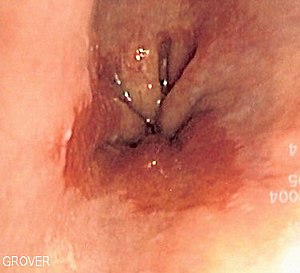- You are here:
- Home »
- Blog »
- non-conventional therapies »
- Proton Pump Inhibitors Adverse Effects and how to Stop Them
Proton Pump Inhibitors Adverse Effects and how to Stop Them

“CONCLUSION:Lactobacillus paracasei F19 supplementation prevents bowel symptom onset in patients on long-term proton pump inhibitors.”
Proton Pump Inhibitors (PPI) such as Prilosec, Prevacid and Nexium can help reduce heartburn but they also can cause gas, bloating, in short…”bowel symptoms.” The solution? Probiotic supplementation. But not just any probiotic.
Let me explain…
The study linked and excerpted below cites Lactobacillus paracasei as the strain of probiotic that “prevents bowel symptom onset in patients on long-term proton pump inhibitors.” The independent supplement testing agency I use, ConsumerLab.com, has tested and evaluated 33 different probiotic brands. Only 3 of these formulations contain lactobacillus paracasei. VSL #3 Capsules contains Lactobacillus paracasei among other probiotic strains.
I’ve written about VSL #3 Capsules for its ability to help people loose weight, prevent cancer and strengthen their bones. Now here comes a study citing VSL #3 Capsules
ability to prevent bowel symptoms in PPI users.
VSL #3 Capsules ‘ Probiotic Strains of Bacteria: “Streptococcus thermophilus, Bifidobacterium breve, Bifidobacterium longum, Bifidobacterium infantis, Lactobacillus acidophilus, Lactobacillus plantarum, Lactobacillus paracasei, Lactobacillus delbrueckii subsp. Bulgaricus.”
For information about nutritional supplementation to manage chronic disease, scroll down the page, post a question or comment and I will reply ASAP.
thank you,
David Emerson
- Cancer Survivor
- Cancer Coach
- Director PeopleBeatingCancer
Lactobacillus paracasei F19 versus placebo for the prevention of proton pump inhibitor-induced bowel symptoms: a randomized clinical trial.
“BACKGROUND: Proton pump inhibitors may foster intestinal dysbiosis and related bowel symptoms…
AIM: To evaluate the effect of Lactobacillus paracasei F19 on bowel symptom onset in patients on long-term proton pump inhibitors…
RESULTS: 100/312 patients were enrolled. In the parallel groups, the treatment-by-time interaction affected bloating, while Lactobacillus paracasei F19 treatment alone affected flatulence. Moreover, the treatment-by-time interaction significantly affected the mean score of bloating and flatulence, the mean stool form and mean stool frequency/week…
CONCLUSION:Lactobacillus paracasei F19 supplementation prevents bowel symptom onset in patients on long-term proton pump inhibitors.”
Adverse Effects Associated with Proton Pump Inhibitor Use
“Proton pump inhibitors (PPIs) marked a before and after in the management of gastric acid‐related disorders since their introduction to the market in 1989. Due to a novel, highly effective mechanism of action blocking the last converging step of gastric acid secretion by parietal cells and very few and mostly tolerable side effects, these drugs quickly displaced other pharmacological compounds such as H2 antagonists as the first treatment choice for peptic ulcer disease, gastroesophageal ulcers, Zollinger-Ellison syndrome, nonsteroidal anti-inflammatory drug-associated ulcers, and eradication of Helicobacter pylori, leading to an exponential increase in their prescription up to now.
However, widespread PPI use has led to emerging evidence of long-term adverse effects not described previously, including:
- increased risk of kidney, liver, and cardiovascular disease,
- dementia,
- enteroendocrine tumors of the gastrointestinal tract,
- susceptibility to respiratory and
- gastrointestinal infections, and
- impaired absorption of nutrients.
Although the evidence published thus far has not established strong correlations, it has been relevant enough to raise new questions about PPIs’ safety profile and reconsideration of their clinical indications. Hence, the aim of this review is to evaluate the association between PPI use and the risk of serious adverse effects given increasing concerns about the overuse of PPIs in the general population.


